Has Jeremy Hunt had a change of heart or a change of circumstances? The Chancellor has spent the past few months crushing any hope of a major tax cut in next Wednesday’s Autumn Statement, insisting that the government’s main priorities – including tackling inflation and improving the dire state of the public finances – directly contradict calls to cut taxes now.
Just a month ago, Hunt was telling grassroot members at Conservative party conference that the Treasury was in no position to talk about personal tax cuts, ‘or even to ask what if’. If there were to be any kind of update in the Autumn Statement, he said, the priority would be business tax cuts – another hint that the Chancellor is looking to make his ‘full expensing’ scheme, to encourage investment, permanent.
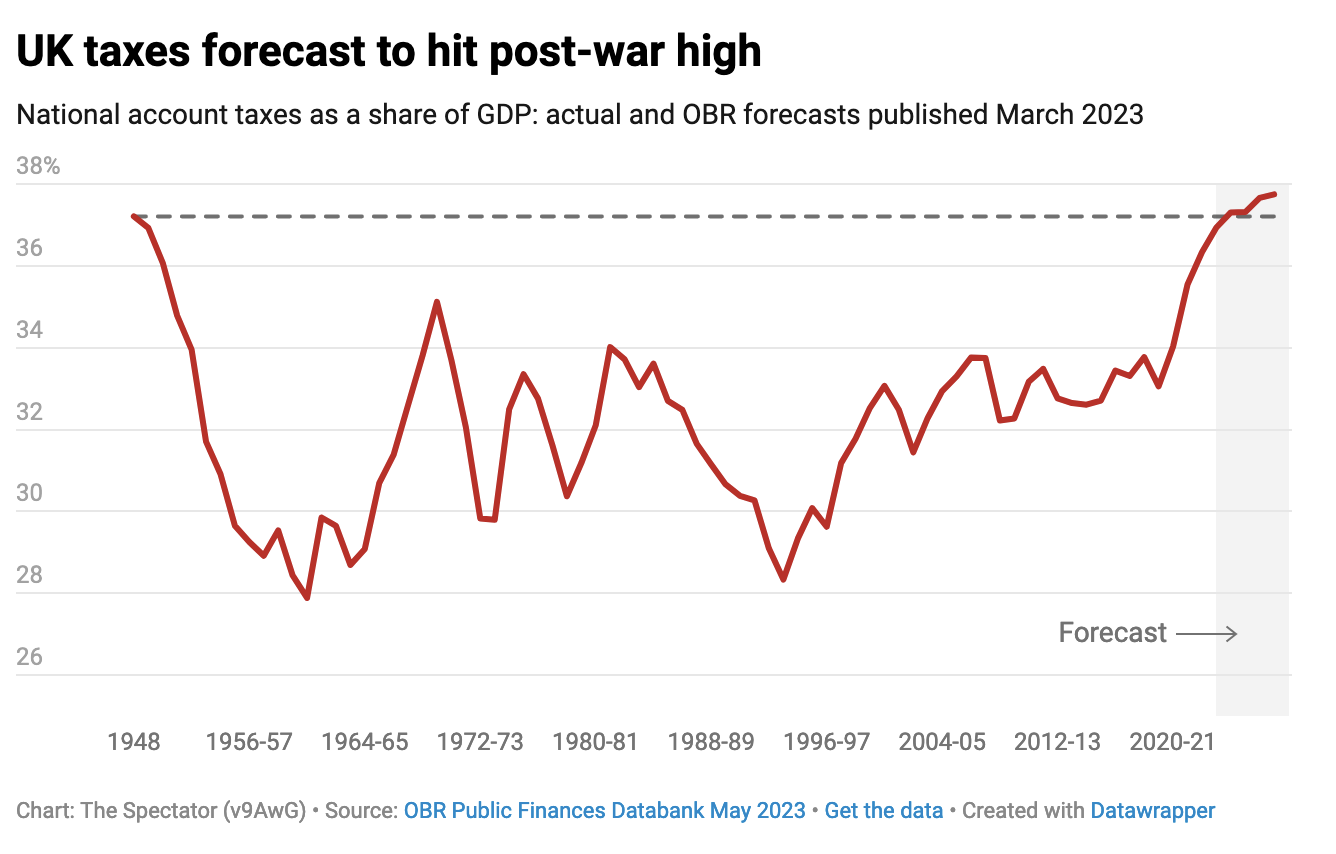
But a lot has changed. This morning on BBC One, Hunt refused to rule out an income tax cut, insisting that while a ‘path to lower taxes’ would have to happen ‘in a responsible way’, his ‘priority’ now that inflation was halved ‘is growth’.
The regular Chancellor’s slot on the Sunday before a major fiscal update is always a frustrating one: usually very little is said, as the Chancellor can insist (as Hunt did on several occasions this morning) that he can only share so much before the statement due to market sensitivities (making a strong case for the grilling to take place following Sunday, when the details of the Chancellor’s update can actually be discussed). But this morning’s programme spoke volumes, as Hunt pivoted dramatically on the language of tax cuts. Having been so willing to rule them out previously, his refusal to do so now suggests he’s got something up his sleeve for this week.
So what’s changed? Hunt had been braced for a horrifying update from the Office for Budget Responsibility, that gave him little to no room to do anything on the tax front. But since Tory party conference, there have been some hints that the finances are in better shape than thought, even a month ago. The National Institute of Economic and Social Research has been suggesting for weeks that, due to soaring inflation and higher tax receipts, the public finances would look better this autumn than predicted by the OBR in March. JP Morgan has estimated the fiscal headroom to be around £25 billion. It’s clear the Treasury thinks something has changed: as reported by Katy Balls in the magazine this week, Hunt has been raising the hopes of his colleagues by telling them that he has more headroom than originally expected.
But is this increased fiscal headroom really a free pass for the Chancellor to start giving the green light to substantial tax cuts? Public sector net borrowing has been lower than expected: September’s figure was £14.3 billion. It’s a staggeringly high amount, but £1.6 billion less than in last September and notably under the OBR’s recent forecast of £20.5 billion.
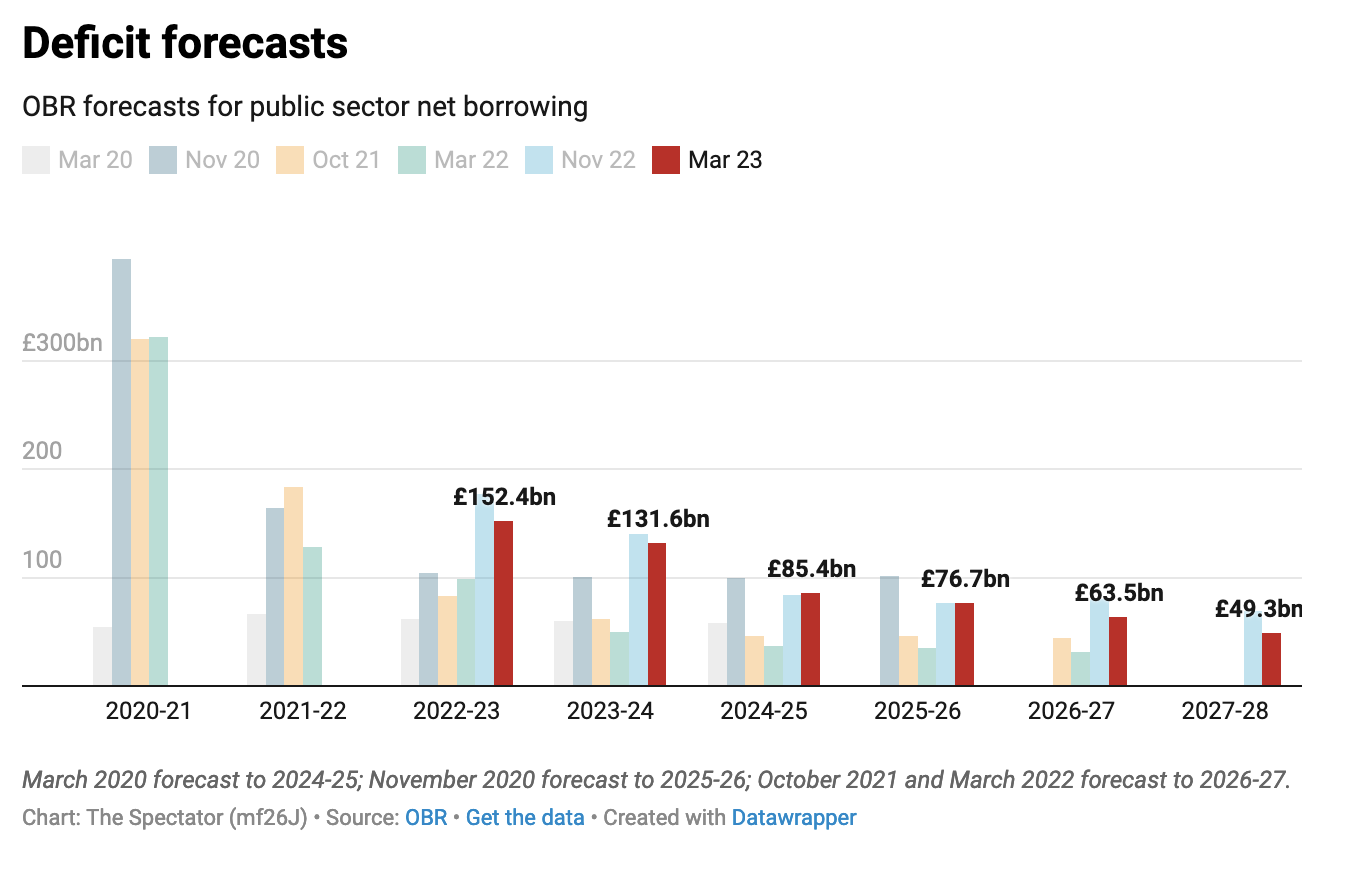
For some, borrowing less than expected means there is room for tax cuts. But until recently, Hunt was not in this camp. Rather, he was more inclined to note that the deficit remains at a substantially higher level than it did pre-pandemic. Furthermore, the £100 billion burden that has been created by soaring debt servicing payments has plunged the public finances into even more chaos. It’s the nightmare that kept his boss up at night: then-chancellor Rishi Sunak knew that any surge in inflation, and then interest rates, would cause havoc with the public finances. It’s the one Hunt is having to deal with now.
So what else has happened in the past few weeks that might have changed Hunt’s mind? While the government made good on its number one priority to ‘halve inflation’, it’s become abundantly clear that the rest of its pledges are all but certain to fall short this year. With approximately zero growth estimated to have occurred between July and September, the pledge to get the economy growing will be met on a technicality at best: no politicians want to stand up and pretend the economy is booming with 0.1 per cent or 0.2 per cent growth. Meanwhile the Supreme Court’s judgment on Rwanda means that no flights will be taking off this year (if ever). The NHS waiting lists continue to rise, as does the national debt. It seems, then, that the government is pivoting towards the one thing it tried to avoid this year: a conversation about tax cuts.
With the tax burden at a near post-war high, and an inflation rate at 4.6 per cent still making everyone worse off, it won’t just be the Tory grassroots that feel some kind of tax relief is long overdue. But Hunt will have to manage the delivery carefully, not least because what is cut (the basic rate of income tax or inheritance tax, for example) will inevitably create a political narrative about who is benefiting most from the change.
Moreover, it reveals further holes in the Treasury’s ongoing argument that tax cuts are inflationary. Spectacular tax cuts across the board could, in theory, risk some kind of inflationary spike, but the kind of cut that Hunt’s fiscal headroom might allow for (a penny off income tax, a small change to National Insurance) was always unlikely to send prices soaring. If anything, it will provide some light – and long-needed – relief. If the Chancellor does cut tax while the inflation rate is still more than double the Bank of England’s target of 2 per cent, this might suggest that the Treasury has never fully bought its own argument about the inflationary risks of tax cuts.
Got something to add? Join the discussion and comment below.
Get 10 issues for just $10
Subscribe to The Spectator Australia today for the next 10 magazine issues, plus full online access, for just $10.


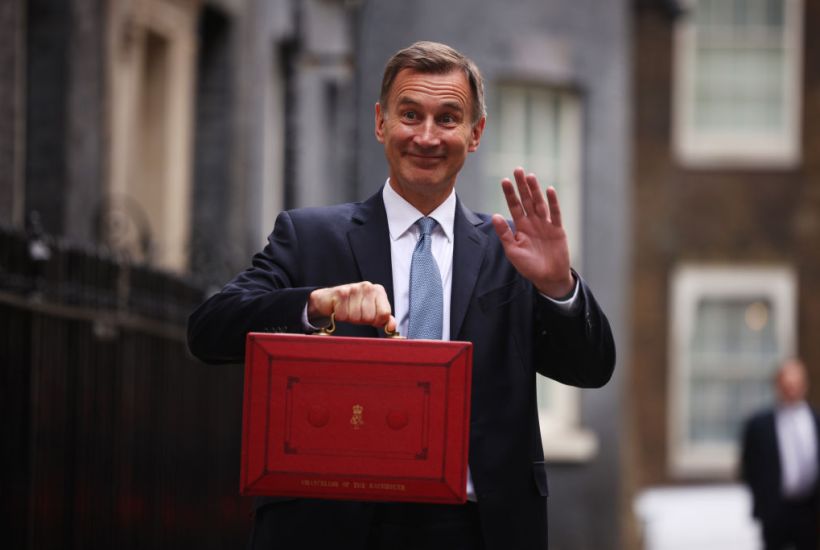
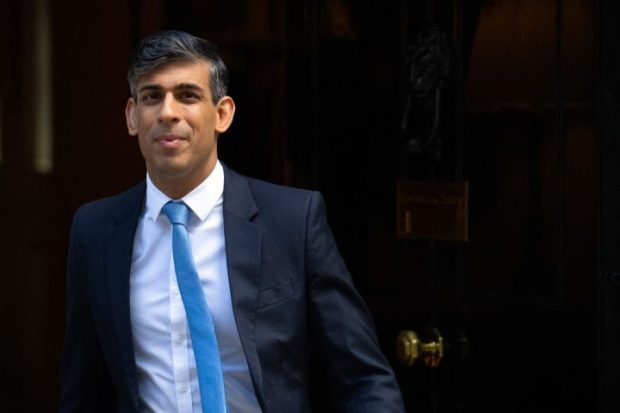
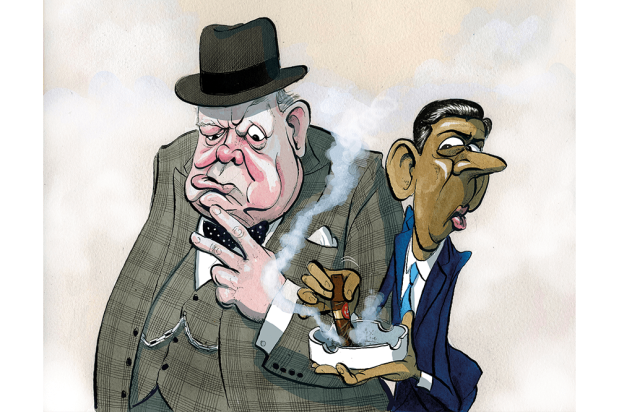
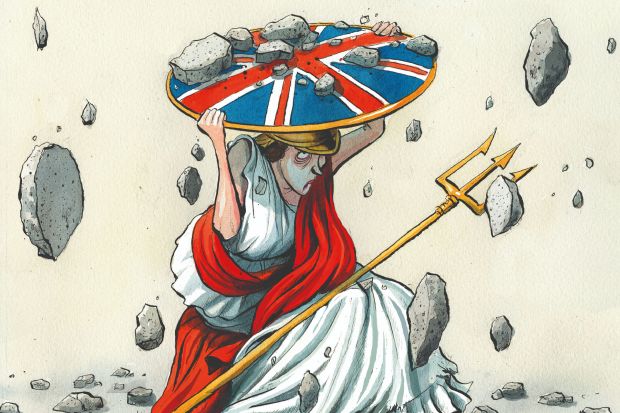
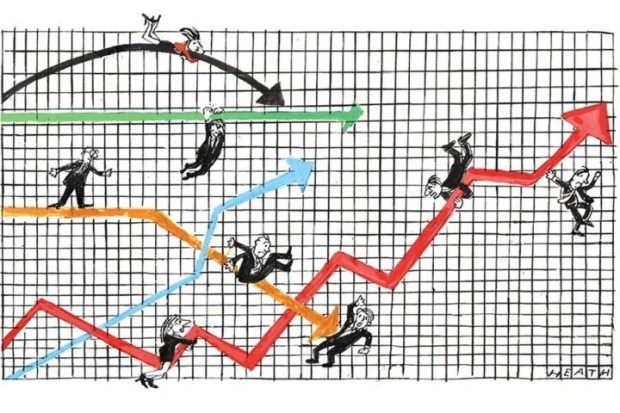
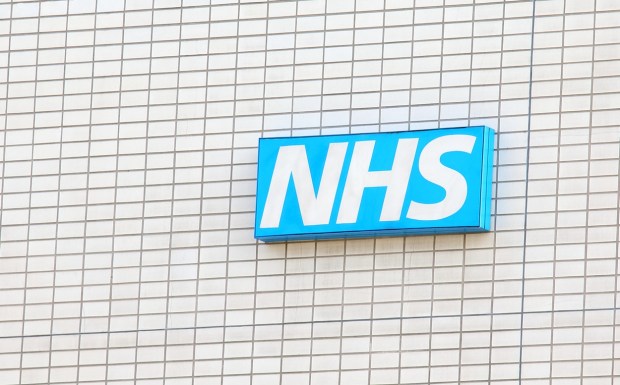













Comments
Don't miss out
Join the conversation with other Spectator Australia readers. Subscribe to leave a comment.
SUBSCRIBEAlready a subscriber? Log in